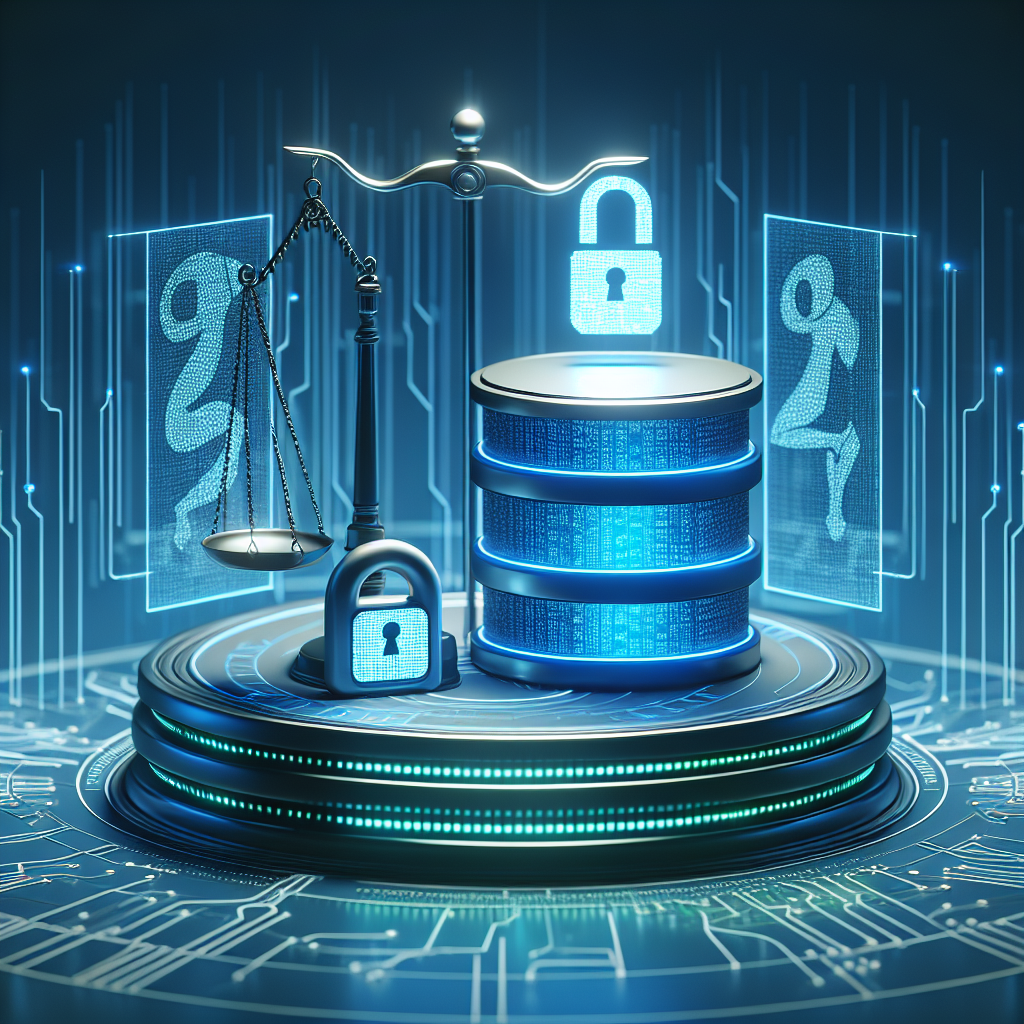Introduction
Artificial Intelligence (AI) has become a powerful tool in today’s digital world, with the ability to analyze massive amounts of data and make informed decisions without human intervention. While AI has the potential to revolutionize industries and improve efficiency, it also raises concerns about data privacy and security. As AI continues to evolve, there is a growing need for robust data privacy laws to protect individuals’ personal information. In this article, we will explore the intersection of AI and data privacy laws, and discuss the implications for the future.
AI and Data Privacy Laws
AI relies on vast amounts of data to train algorithms and make predictions. This data can include personal information such as names, addresses, and financial details. As AI systems become more sophisticated, the risk of data breaches and privacy violations increases. In response to these concerns, governments around the world are enacting data privacy laws to regulate the collection, use, and sharing of personal data.
One of the most well-known data privacy laws is the European Union’s General Data Protection Regulation (GDPR), which came into effect in 2018. The GDPR imposes strict requirements on organizations that collect and process personal data, including the need to obtain explicit consent from individuals and the obligation to notify authorities of data breaches. Failure to comply with the GDPR can result in hefty fines, making it essential for businesses to prioritize data privacy.
In the United States, data privacy laws vary by state, with California leading the way with the California Consumer Privacy Act (CCPA). The CCPA gives consumers more control over their personal information by allowing them to request the deletion of their data and opt-out of the sale of their data to third parties. Other states, such as New York and Washington, are considering similar legislation to protect consumers’ privacy rights.
The Role of AI in Enforcing Data Privacy Laws
AI can play a crucial role in enforcing data privacy laws by helping organizations identify and mitigate privacy risks. For example, AI-powered tools can scan databases for sensitive information, flag potential security vulnerabilities, and detect unauthorized access attempts. By leveraging AI, organizations can proactively address privacy concerns and ensure compliance with data privacy laws.
Additionally, AI can be used to enhance data protection measures, such as encryption and anonymization. By implementing AI-driven security solutions, organizations can safeguard sensitive data and prevent unauthorized access. AI can also facilitate data minimization strategies, which involve collecting only the data necessary for a specific purpose and deleting unnecessary information to reduce the risk of data breaches.
Challenges and Opportunities
While AI presents opportunities for improving data privacy, it also poses challenges that must be addressed. One of the main concerns is the potential for AI bias, where algorithms make decisions based on flawed or incomplete data. This bias can result in discriminatory outcomes, such as denying individuals access to financial services or job opportunities based on their race or gender. To mitigate bias, organizations must implement transparency and accountability mechanisms in AI systems, such as conducting regular audits and providing explanations for algorithmic decisions.
Another challenge is the lack of international standards for data privacy, which can create confusion for organizations operating across multiple jurisdictions. To address this issue, policymakers must work together to harmonize data privacy laws and establish clear guidelines for cross-border data transfers. By collaborating on global data privacy standards, countries can ensure consistency and coherence in their regulatory frameworks.
Despite these challenges, AI also presents opportunities for enhancing data privacy through innovative solutions. For example, AI can be used to develop privacy-preserving technologies, such as differential privacy and homomorphic encryption, which enable data analysis without compromising individuals’ privacy. By leveraging these technologies, organizations can protect sensitive information while still deriving valuable insights from data.
FAQs
1. What is AI?
AI stands for Artificial Intelligence, which refers to the simulation of human intelligence in machines. AI systems can perform tasks that typically require human intelligence, such as learning, reasoning, and problem-solving.
2. How does AI impact data privacy?
AI can impact data privacy by analyzing vast amounts of personal information and making decisions based on that data. This raises concerns about data breaches, privacy violations, and algorithmic bias.
3. What are data privacy laws?
Data privacy laws are regulations that govern the collection, use, and sharing of personal data. These laws aim to protect individuals’ privacy rights and ensure that organizations handle data responsibly.
4. How can AI enforce data privacy laws?
AI can enforce data privacy laws by helping organizations identify privacy risks, enhance data protection measures, and mitigate bias in AI systems. By leveraging AI, organizations can ensure compliance with data privacy regulations.
5. What are the challenges and opportunities of AI in data privacy?
Challenges include AI bias, lack of international standards, and regulatory complexity. Opportunities include privacy-preserving technologies, transparency, and accountability mechanisms.
Conclusion
As AI continues to reshape industries and transform the way we interact with technology, the need for robust data privacy laws has never been more critical. By addressing the challenges and opportunities of AI in data privacy, policymakers can create a regulatory framework that protects individuals’ personal information while fostering innovation and growth. With the right balance of regulation and innovation, AI has the potential to revolutionize data privacy and empower individuals to control their digital identities.

